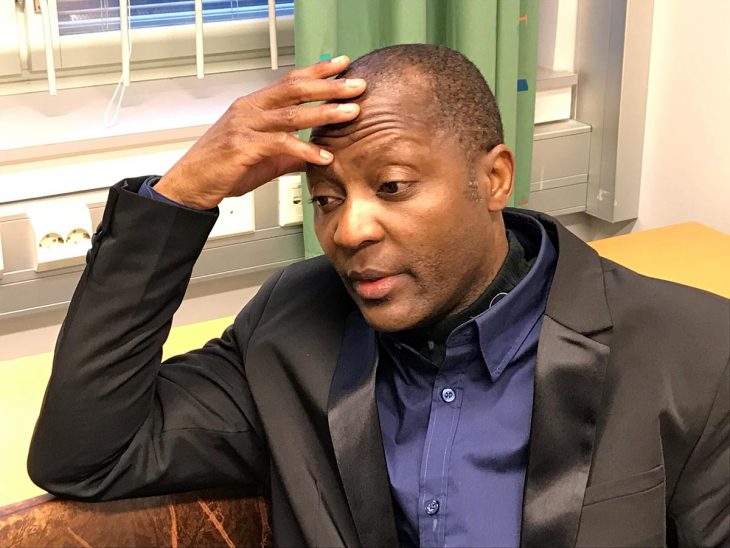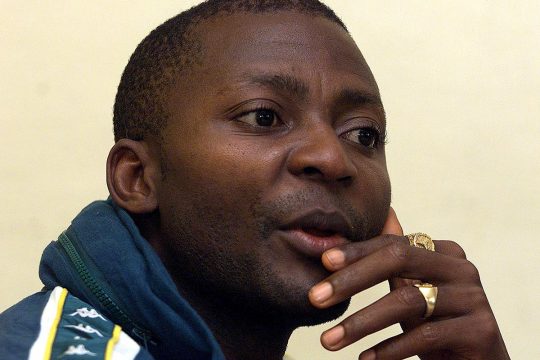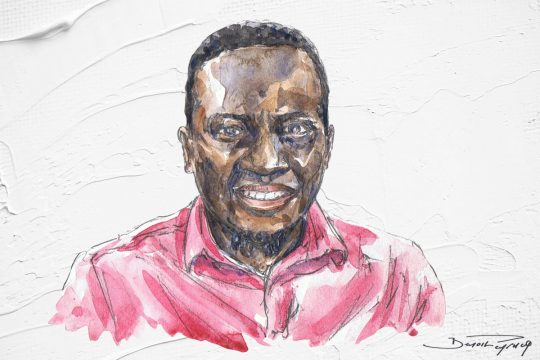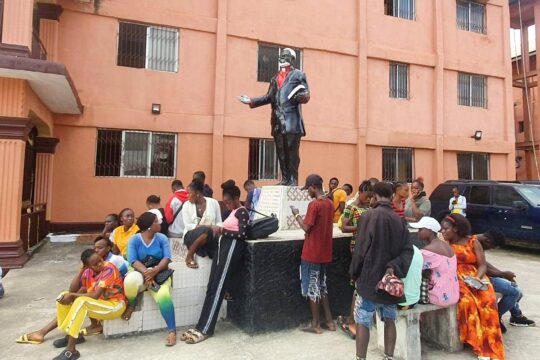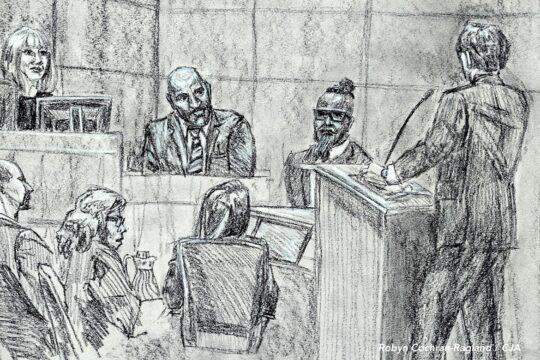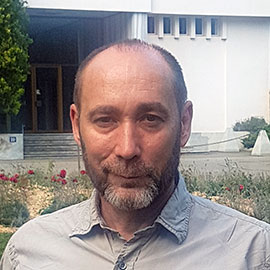This April 29, on the last day of the deadline they had given themselves to release their judgment, the four judges of the court of Tempere, in Finland, unanimously pronounced the acquittal of Gibril Massaquoi, a former Sierra Leonean rebel commander prosecuted for war crimes and crimes against humanity committed in Liberia between 1999 and 2003. Since Massaquoi's release on February 16, this outcome had been expected, even though the court never gave any indication of its analysis of the case. According to sources who had direct access to the 850-page judgment in Finnish language and according to an online translation of the court’s initial findings, judges dismissed all charges and found that there was “reasonable doubt” about Massaquoi being the person identified by witnesses on the crime scenes.
There is no English version of the judgment, nor a summary - this was considered too costly. The details of the court's conclusions and analyses are therefore difficult to grasp at once for observers who do not read Finnish. But some of the questions raised by this extraordinary trial can already be retained.
Justice both close to and disconnected from realities
By multiplying investigations in the field and moving the entire court to Liberia twice, for about three months, as well as to Sierra Leone for a month, the Finnish justice system seemed to have given itself unprecedented means to make this trial more relevant for the victims - and Liberian society in particular - and to familiarize itself with the realities of the sub-region. In doing so, the Finnish model certainly made things much more comfortable for the victims and witnesses, who did not have to travel to Europe to testify. Judges, prosecutors and lawyers were also able to have first-hand experience. But they failed to open this trial to national and regional expertise, as none of the parties requested the appearance of Liberian or Sierra Leonean experts. And they failed to open their hearings to the public. Above all, the investigation department and the prosecutor's office were deaf to the multiple alarm bells that went off in the early days of the trial about the contradictions in the prosecution's case.
Historical expertise, the intimate knowledge of the context of events, is always the Achilles heel of international tribunals and national courts practicing universal jurisdiction. The trials of Rwandans prosecuted for the Tutsi genocide in 1994 before the International Criminal Tribunal for Rwanda, created by the UN, as well as before Belgian, French, Canadian and other courts, have often highlighted this difficulty. But never has a trial so far departed from the research of historians, from known and documented facts. In this sense, the Massaquoi case has more increased the gap of geographical distance that marks off courts judging distant facts with which they are not familiar, than it has filled it.
Serious doubt on the investigations’ integrity
In fact, the investigators and the prosecutor's office have taken it upon themselves to radically emancipate themselves from the historical, political and even judicial realities that were common knowledge about the actors in Liberia and Sierra Leone during the years 2001-2003. In the midst of the trial, the prosecution finally put forward an extravagant thesis according to which the accused would have left his UN-protected residence in Freetown in July or August 2003 for several days to go to Monrovia in the middle of the rainy season to fight and commit massacres alongside Liberian President Charles Taylor and, in particular, his key deputy, Benjamin Yeaten, even though he had betrayed them before an international court, and then to return to Freetown without anyone noticing the exploit.
On this point, the acquittal of Massaquoi saves the Finnish justice system from embarrassment in the eyes of historians. But this trial profoundly questioned the functioning of its investigative services and the influence of the chief investigator, Thomas Elfgren, both before the trial and throughout its duration, where he remained a sort of omnipresent mastermind of the logistical organization of the hearings, of access to witnesses and of relations with the media.
Scripted witness accounts, fluctuating dates that sought to be compatible with the alibi of the accused or, on the contrary, with the crimes alleged, especially in Monrovia, the mystery of the appearance of the nickname "Angel Gabriel" that Massaquoi had allegedly given himself but that no one had heard of before this trial: from the very first testimonies in court, obstacles and doubts appeared regarding the accusations against Massaquoi and, more seriously, the integrity of the investigation. With a cruel situation: there is no doubt about the crimes committed in Lofa province in 2001, the victims of which testified in court and which were documented at the time by Human Rights Watch, among others; there is also no doubt about the atrocities committed between June and August 2003 in the center of the Liberian capital, when the rebels were about to overthrow Taylor. Except that witnesses were mistaken, or misled, about the presence and responsibility of Massaquoi, a.k.a. "Angel Gabriel," in these events.
What impact on other Liberian cases?
Two organizations - the Swiss NGO Civitas Maxima and its Liberian partner, the Global Justice Research Project (GJRP) - have been holding out hope for justice for the crimes committed in Liberia during the two civil wars between 1990 and 2003 for the past ten years. They are the only actors who have been actively engaged in ensuring that Liberian warlords do not continue to enjoy total impunity for the past two decades. Their investigations are central to the prosecutions in the United States, Great Britain, Belgium, France and Switzerland of notorious commanders from those dark years. They are also at the origin of the proceedings against Massaquoi in Finland.
In the Massaquoi case, the initial investigations by the two NGOs concerned only the Lofa region, where the presence of the accused was plausible. It was the Finnish investigation that expanded the case to include crimes in Monrovia, causing an overreach and a rush to conviction that would eventually undermine the entire prosecution's case. But the personal involvement of Hassan Bility, director of the GJRP, as an alleged victim of Massaquoi and a witness in the trial, and the original link between this case and the work of Civitas Maxima, may clearly be in danger of being used by their resentful critics to oppose national and international prosecutions of Liberia's former killers.
Warlord turned victim
This may be the ultimate paradox of this criminal case: Massaquoi, who has been accused by many, including a Truth and Reconciliation Commission, for crimes committed in Sierra Leone during the civil war, should be compensated by the Finnish justice system, notably for his two years of detention, according to the standards of this country which is very concerned with individual rights. Asked about this last February, his lawyer Kaarle Gummerus did not reveal the amount of damages he would ask for his client, but it should be in the hundreds of thousands of euros. It is possible that this request is delayed if an appeal is filed by the prosecutor. This compensation is well defined in Finnish law, but it may be even more bitter for victims of crimes committed in both Liberia and Sierra Leone.


